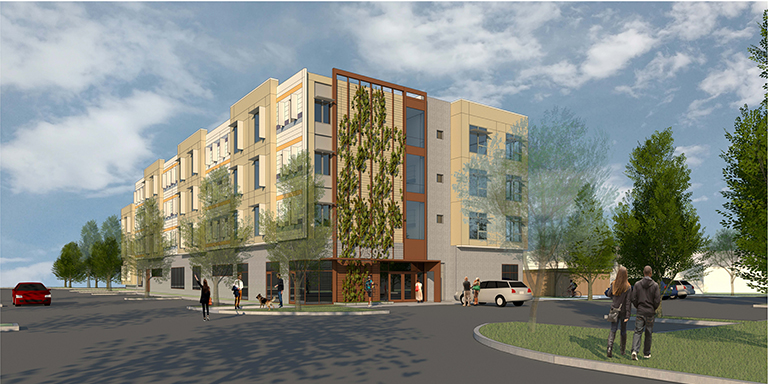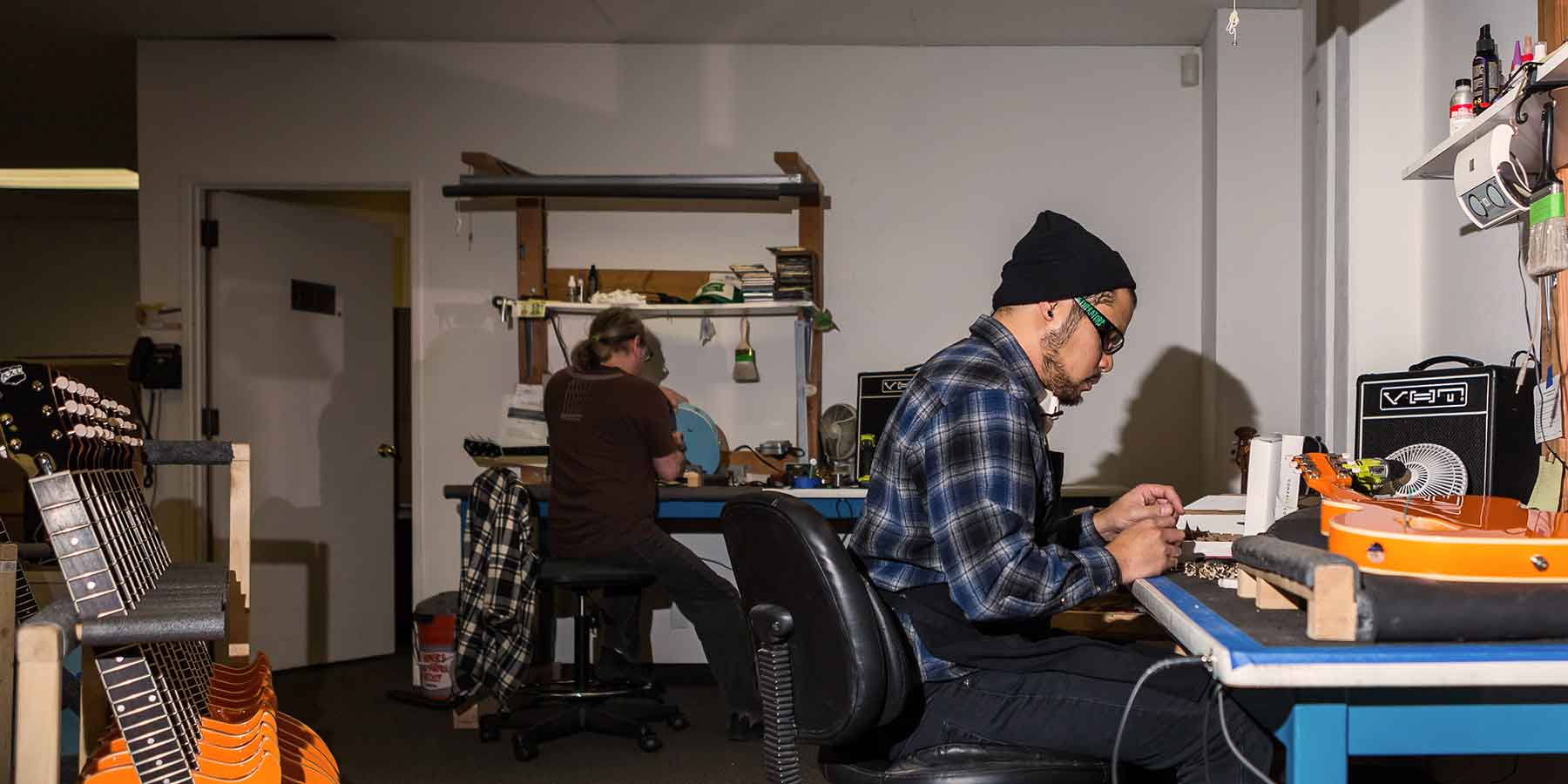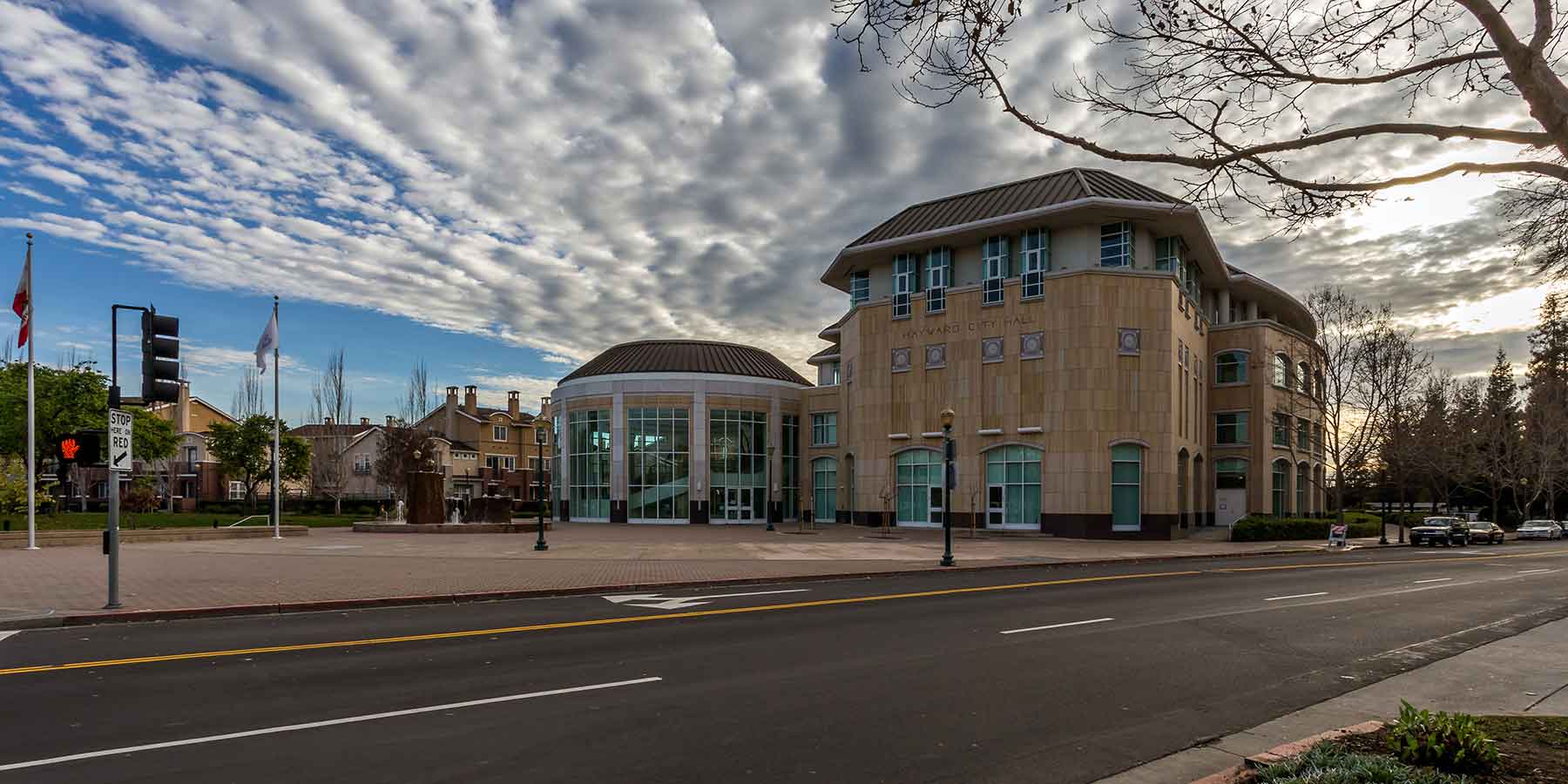Allied Housing Depot Road Project
On January 7, 2020, Allied submitted a *revised* application for the proposed development at 2595 Depot Road. The revised application invokes State Laws that allow for a streamlined review process and unlimited density bonus. Please read about the updated application and applicable State Laws in this letter.

Depot Rd project perspective drawing provided by Lowney Arch and Allied Housing
Upcoming Meetings
There will be a Community Meeting to answer questions about the *revised* application submittal on Wednesday, March 4, 2020 from 6:30 pm to 8:30 pm at California Crosspoint Academy, 25500 Industrial Boulevard. However, since the project is no longer subject to discretionary review, it will not be suject to public hearings or the City appeal process.
What is the project?
The proposed development would consist of:
125 studio apartments that would range from 281 to 296 square feet per unit. One unit would be a one-bedroom manager's unit.
An L-shaped building with a three story wing along the northern property line and a four story wing along the western property line.
Housing units that would be affordable to households who earn between 20% and 60% of the area median income.
About half of the apartments would be set aside for a special needs target population, including persons experiencing homelessness.
On-site supportive services including case management and resident services coordination would be available for all residents. Full-time on-site service staff will include two social workers and one resident services coordinator with possible additional support staff based on the needs of the residents.
71 on-site parking stalls for residents.
Construction of a new parking lot for Cronin House resulting in seven additional parking spaces for a total of 14 parking spaces on the Cronin House site.
On-site amenities would include an interior courtyard, half basketball court, picnic and BBQ area, small dog run, looped walking path, and gardening area.
The site is currently occupied by the Cronin House, a State-licensed residential drug and alcohol rehabilitation facility, and the abandoned Herman Mohr House. Cronin House will continue to be operated as a separate facility on the property and the Herman Mohr House would be demolished.
What is happening with this project?
As noted above, the applicant submitted a revised application on January 7, 2020 invoking State Laws (Senate Bill 35 and Assembly Bill 1763) to streamline the approval process provided that the development meets certain criteria and to allow for unlimited density bonuses for affordable housing projects within a certain distance of transit. Please read this letter answering questions about the applicability of these State Laws to the project.
Did the City Council already take action on this project?
On October 2, 2018, following completion of a Request for Proposals (RFP) process, the City Council allocated funding from voter-approved Alameda County A1 Bond funds and various local affordable housing funds to three affordable housing projects that satisfied the terms of the RFP and met local, regional and state-wide housing needs. One of those projects was the Depot Road project. The staff report for that item can be found at this link.
According to City Council Resolution No. 18-214, if the land use approvals are completed within two years of the date of the resolution, then the funds could be used toward construction of the project.
Why did the City locate the project here?
The City was not involved in locating the project here. Rather, this is a property transaction between two private entities.
Allied sought an opportunity to purchase a property that would be large enough to accommodate a supportive and affordable housing development. In order to effectively operate such a development, the site has to be large enough to provide an economy of scale with key staffing positions to support the residents. Properties large enough to support this type of developent are difficult to locate and acquire. Allied also needed a property seller that could work with a longer than usual market acquisition timeline due to the complicated funding process for this type of development. Allied found both of these benefits with the Horizons property.
What is the process for Allied Housing and Abode Housing to verify incomes for residents?
All residents are required to be income certified on entry and must recertify annually thereafter. Documents required include verification of employment and paystubs.
What is permanent supportive housing?
The project is being designed and planned as permanent supportive housing. It will operate like a typical apartment building with service staff on site to provide support to residents. The proposed project is not transitional housing or a homeless shelter. Rather, it is affordable rental housing for low income households.
Who is the target population?
The project would offer half of the units to households who have experienced homelessness. The Bay Area homeless problem has grown in recent decades and cannot be solved with conventional approaches to affordable housing. All Bay Area jurisdictions have a role to play in helping to alleviate this issue. It cannot be addressed by one or just a few jurisdictions. Allied is proposing micro-units for inviduals and couples because the most recent point-in-time count of the homelessness population in Hayward revealed that the vast majority of people experiencing homelessness are single adults.
The other half of the units would be available to households who earn below 60% of the Area Median Income (AMI) for Alameda County. For a single person household, 60% of the AMI is currently $48,840 per year. For a two-person household, 60% AMI is currently $55,800.
Why is Allied Housing proposing to build micro-units?
All housing, even affordable housing, is expensive to build because land is scarce and expensive and the cost of materials and labor is increasing. The proposed project would lower the cost per unit by decreasing the size of the apartments while still conforming to all building codes and providing on-site amenities and services to increase the quality of life for residents. Micro units help to achieve higher densities, allowing housing providers to make the most out of a single piece of vacant land, and help to achieve a scale that allows for efficiency of building operation and provision of services.
Relevant Links
EveryOne Home - Ending Homelessness in Alameda County
Project Documents
- Notice of Receipt of Updated Application and Community Meeting
- Notice of Preparation for an Environmental Impact Report
- August 1, 2019 Resubmittal
- May 15, 2019 Resubmittal
- January 14, 2018 Submittal
Upcoming Meetings
- Wednesday, March 4, 2020 from 6:30 p.m. to 8:30 p.m. at California Crosspoint Academy, 25500 Industrial Boulevard, Hayward
Please feel free to contact the project planner if you have any questions.








